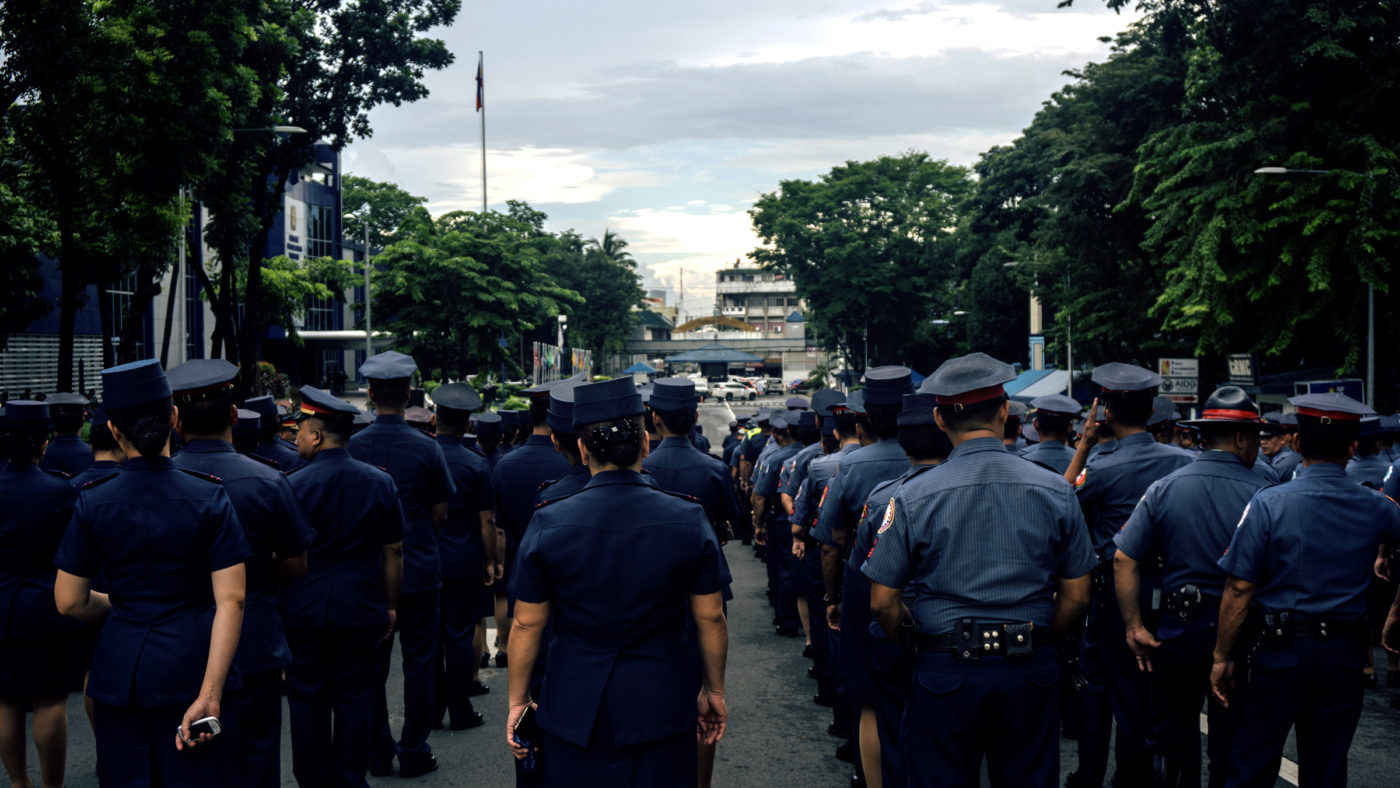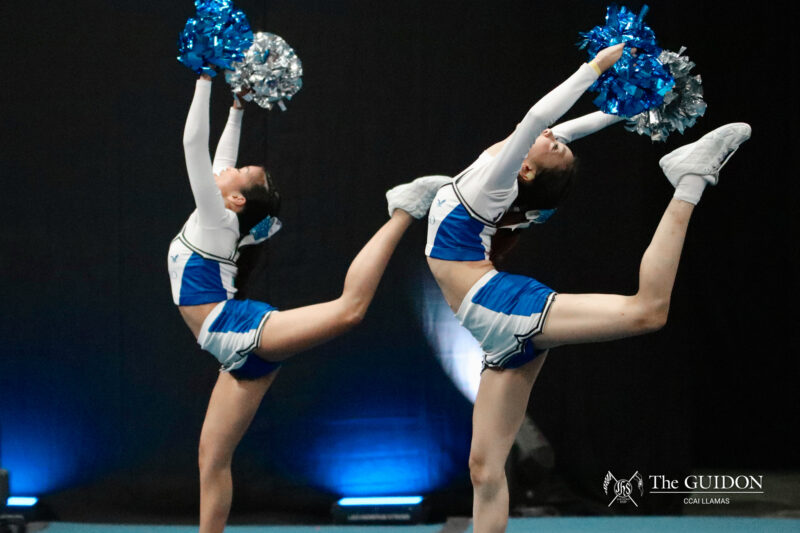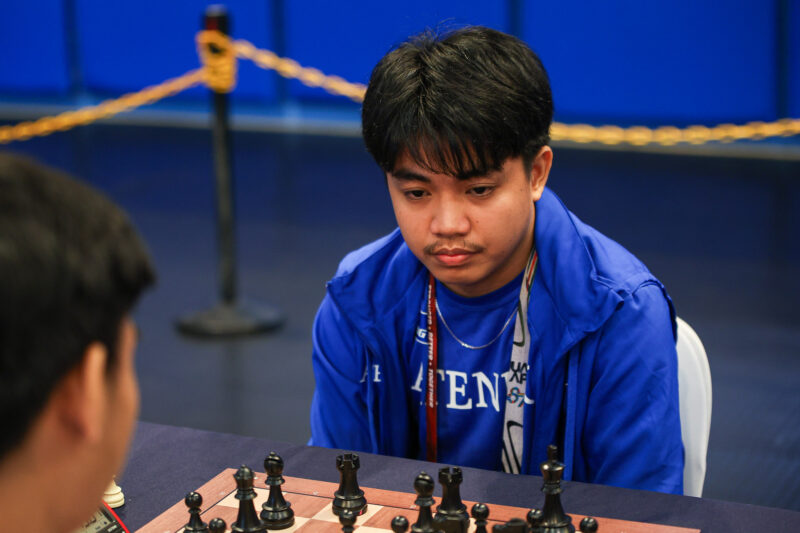On October 3, 2013, Alfreda Disbarro, a 32-year old mother of two and former police informant accused of peddling drugs by unnamed police officers, was brought to a nondescript detention room in the Parañaque City Police Headquarters with five other detainees. She was singled out by a police asset, who then placed a bottle of alcohol on top of her head and took aim at it with a gun, in mock Robin Hood fashion. “He said he [would] shoot the bottle on my head. He was one and a half yards away from me. I was so afraid that I would get shot. I just closed my eyes in fear,” she said.
This was just the beginning of her horrific ordeal within the police compound, where she was subjected to physical abuse at the hands of her captors. In one instance, a police officer beat her with a mop handle after shoving the damp mop head forcefully into her mouth just hours after being brought into the police station.
Disbarro’s ordeal has been documented in Amnesty International’s report on police torture in the Philippines titled Above the Law. Her case is but one of many other cases of human rights violations by police officers.
Protectors of the peace
Once again, the Philippine National Police (PNP) is facing questions on their commitment to human rights. President Rodrigo Duterte has heavily relied on the PNP to carry out his mandate in stamping out criminality and drugs. Recently, there has been a sharp rise in casualties as a result of police-sanctioned operations. At least four drug suspects are killed every day in police operations. according to the PNP’s statistics office.
Human rights advocates and lawmakers are crying foul. Jose Manuel Diokno, chair of the Free Legal Assistance Group, told Channel News Asia that “President Duterte’s war on crime has spawned a nuclear explosion of violence that is spiraling out of control and creating a nation without judges, without law, and without reason.”
Ifugao Representative Teddy Baguilat said that the president’s rhetoric “breeds a culture of violence and a culture of retribution.”
Senator Leila de Lima, former justice secretary and Commission on Human Rights (CHR) chair, noted that “the killings are on the rise, and there are just telltale signs of summary executions in a number of them.”
Both Baguilat and De Lima have filed resolutions in their respective chambers of Congress calling for an investigation of the killings.
In response to these allegations, Police Director Wilfredo D. Franco, director of the PNP’s Department of Police Community Relations, said that all police officers must follow the proper suspect apprehension procedure as written in the Police Operational Procedures Manual (POPM).
The procedures in the manual ensure that the rights of the accused are respected from apprehension to court release. For instance, the arrest must have a proper justification and the suspect should be afforded no bodily harm during the entire process. He said that graduates from the Philippine National Police Academy (PNPA) are “relentlessly drilled” on the POPM, with several modules within the PNPA curriculum solely dedicated to studying the manual.
Broken shield
Despite the POPM’s existence, there are still cases in which police officers have violated the human rights of suspects through improper application of force, extended detention periods, and the inhumane treatment of detainees.
In 2014, 10 police officers were sacked following their involvement with the maltreatment of 41 detainees, mostly suspected drug traffickers, at a secret PNP facility in Biñan, Laguna. According to the Philippine Daily Inquirer, police officers used a “wheel of torture” to exact information from detainees. For example, if the wheel landed on “20-seconds Manny Pacman,” detainees will be beaten. “30-seconds bat” means detainees will be hung upside down from their legs.
Aside from the maltreatment of detainees, there is also the dismal condition of police lockup cells.
According to an official* from the PNP Human Rights Affairs Office (PNP-HRAO), many detainees under custodial investigation (period between an arrest and an official court hearing) are detained for more than 30 days within the local station’s lockup cells. These cells are only meant to hold suspects for a period less than 30 days before being summoned to court.
According to a CHR report lockup cells across the five police districts of the National Capital Region are plagued with issues such as poor ventilation, absence of natural light, lack of beddings and mattresses, and adequate toilet facilities. Basic necessities such as food and water are scarce, as most police stations do not have an institutional fund to cover the cost of the detainees’ meals. There is also a lack of medicines and medical officers stationed in the station.
Blamed on ignorance
In the face of the criticisms against the PNP, the PNP-HRAO official reaffirmed that the police will always uphold the human rights of the accused. The official added that police officers will never willfully infringe upon the human rights of the accused no matter the circumstance.
In instances in which officers were accused of violating human rights, either unlawful detention or bodily harm, it was the ignorance of the officer in question (about the rights of the accused) or circumstance, the official said.
When questioned about the scenarios in which police officers have clearly violated the rights of the accused during the arrest process, the official said that some officers didn’t know that their actions were illegal. The official also mentioned that not all police officers had the opportunity to graduate from the PNPA and that these non-PNPA graduates weren’t sufficiently trained on the POPM.
As for the woeful state of lockup cells, the official attributed this to the inadequate budget allocation from the previous administration. In most cases, police officers had to pay out of their own pocket in order to feed the detainees, the official said.
Advocacy and accountability
In response to these lapses of moral judgment, the PNP-HRAO has implemented an awareness and advocacy campaign aimed towards inculcating human rights education among its officers. As part of this advocacy campaign, the department plans on holding seminars on human rights education and refresher courses on the POPM across its regional divisions, especially in areas where officers received little to no formal police training save for an orientation given by their local police department.
As to accountability of officers, Franco stated that all police-sanctioned operations, regardless whether there were casualties involved, are always investigated by the Internal Affairs Service department of the PNP, the National Police Commission, and the PNP-HRAO in order to determine whether the application of force was deemed acceptable.
* Name withheld at the request of the official.
What do you think about this story? Send your comments and suggestions here: tgdn.co/2ZqqodZ




